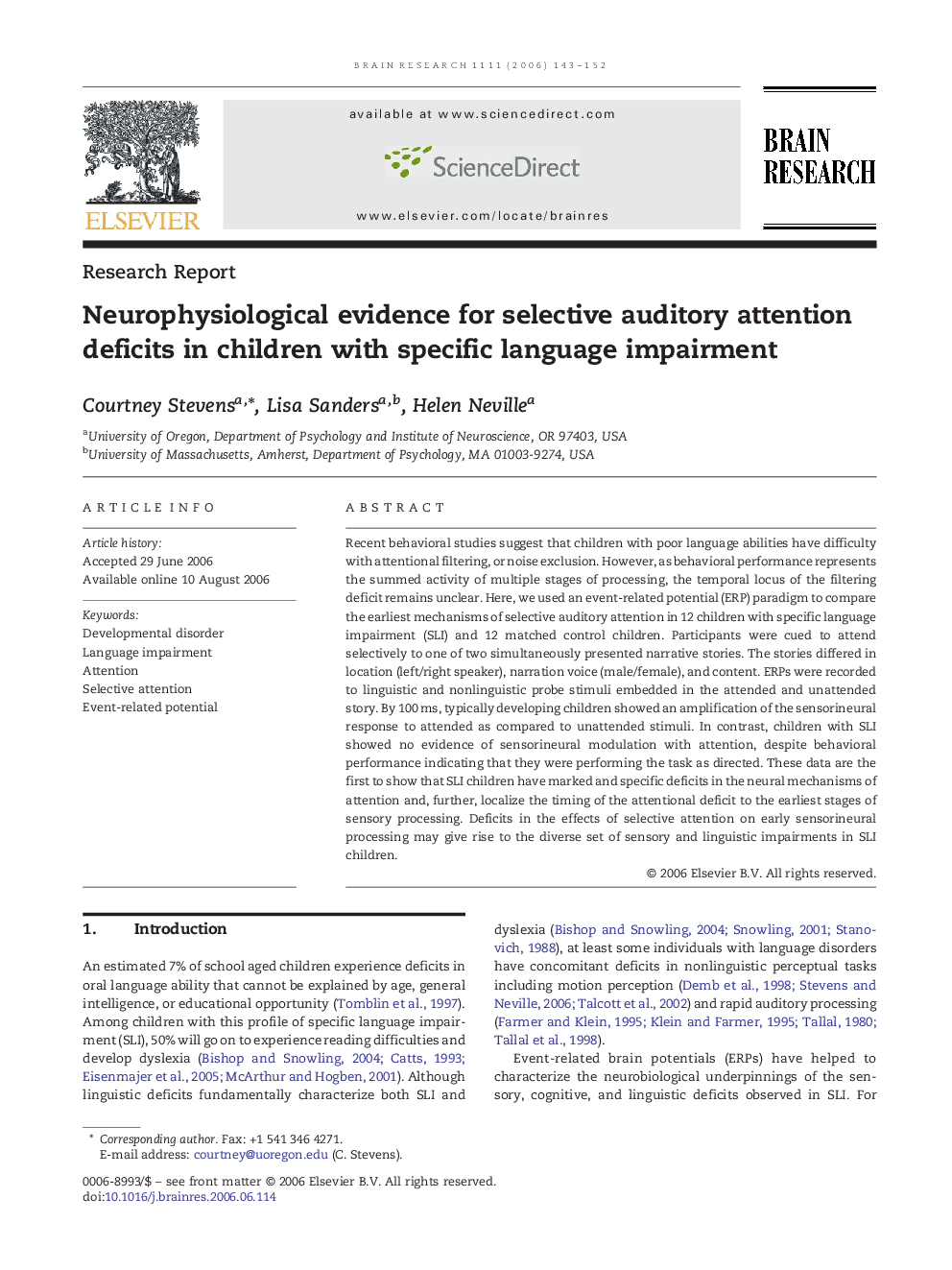| Article ID | Journal | Published Year | Pages | File Type |
|---|---|---|---|---|
| 4332043 | Brain Research | 2006 | 10 Pages |
Recent behavioral studies suggest that children with poor language abilities have difficulty with attentional filtering, or noise exclusion. However, as behavioral performance represents the summed activity of multiple stages of processing, the temporal locus of the filtering deficit remains unclear. Here, we used an event-related potential (ERP) paradigm to compare the earliest mechanisms of selective auditory attention in 12 children with specific language impairment (SLI) and 12 matched control children. Participants were cued to attend selectively to one of two simultaneously presented narrative stories. The stories differed in location (left/right speaker), narration voice (male/female), and content. ERPs were recorded to linguistic and nonlinguistic probe stimuli embedded in the attended and unattended story. By 100 ms, typically developing children showed an amplification of the sensorineural response to attended as compared to unattended stimuli. In contrast, children with SLI showed no evidence of sensorineural modulation with attention, despite behavioral performance indicating that they were performing the task as directed. These data are the first to show that SLI children have marked and specific deficits in the neural mechanisms of attention and, further, localize the timing of the attentional deficit to the earliest stages of sensory processing. Deficits in the effects of selective attention on early sensorineural processing may give rise to the diverse set of sensory and linguistic impairments in SLI children.
